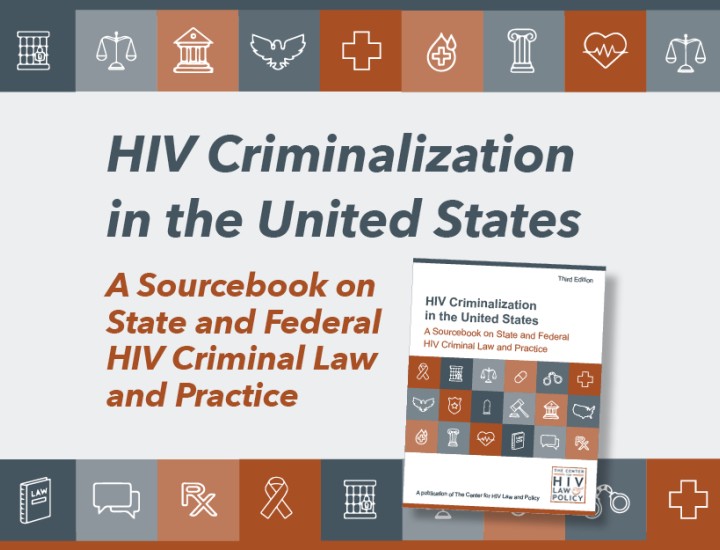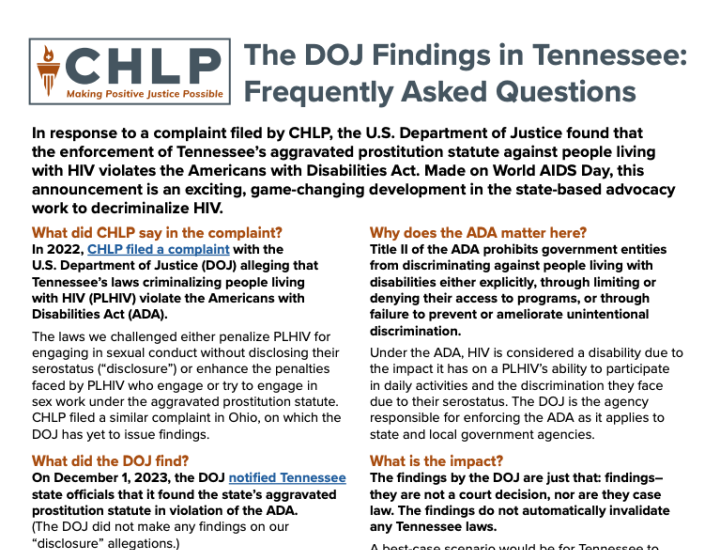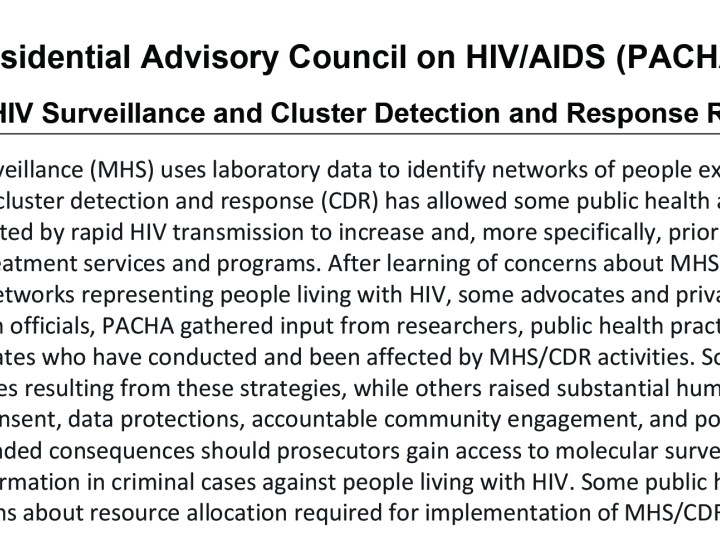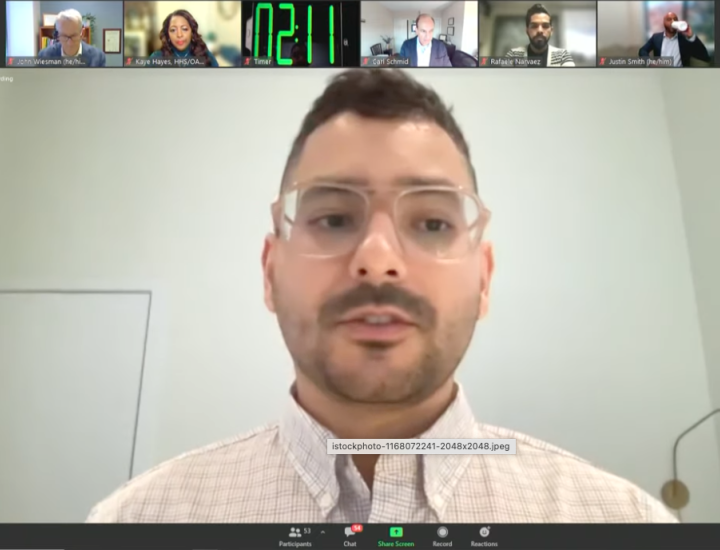CHLP Presents to PACHA about Work to Combat the Surveillance, Criminalization, and Oppression of PLHIV

In March, CHLP Staff Attorneys Jada Hicks, Sean McCormick, and Kae Greenberg met with the new Criminalization and Discrimination Working Group in the Stigma and Disparities Subcommittee of the Presidential Advisory Council on HIV/AIDS (PACHA). PACHA provides information and recommendations to the U.S. Secretary of Health & Human Services regarding effective policies and programs for the prevention, treatment, and cure of HIV. The Stigma and Disparities Subcommittee advises on effective methods for reducing the stigma affecting people living with and affected by HIV, decreasing HIV-related disparities impacting people of color, LGBTQ+ individuals, women, and other marginalized communities, and remedying economic, health, and structural inequities.
The Working Group invited CHLP to discuss our work to end stigma, discrimination, and violence toward people living with and deeply affected by HIV through our intersectional legal and policy work. CHLP’s presentation focused on the convergence of public health surveillance leading to criminal legal, family regulation, and other systems of surveillance and criminalization. It also emphasized how these consequences disproportionately impact Black, Latine, and LGBTQ+ people, pregnant individuals, and parents.
Jada Hicks spoke about the efforts of the Positive Justice Project and the ADA To Attack Criminalization (ATAC) Team, including the recent findings letter and lawsuit filed by the U.S. Department of Justice. There are more than 30 states with laws that explicitly criminalize people living with HIV (PLHIV). She noted the varied ways these laws imposed heightened criminal penalties on PLHIV, such as sex worker and needle-sharing enhancements, civil commitment, and sex offender registration.
“HIV criminalization extends far beyond cases of personal vendettas or jilted lovers seeking retribution,” Jada noted. “It represents a systemic issue where surveillance of individuals living with HIV can morph into a tool for discrimination and criminalization.”
Sean McCormick highlighted recent written testimony filed by CHLP and the Well Project in opposition to Maryland Senate Bill 211/House Bill 119, the so-called GIFT Act.
Maryland has an HIV-specific criminalization offense that singles out PLHIV who “knowingly transfer or attempt to transfer the human immunodeficiency virus to another individual.” The statute requires neither actual transmission nor an intent to transmit HIV. Furthermore, any type of HIV exposure, including chestfeeding by parents living with HIV, may be subject to prosecution. Convictions may result in up to three years of imprisonment and up to a $2,500 fine.
The GIFT Act would expand the data collected on parents living with HIV, potentially exposing them to increased surveillance and punishment through the criminal legal and family regulation systems. These changes would especially affect Black Marylanders, already disparately targeted by the criminal legal and family regulation systems.
An amended version of the GIFT Act recently passed through the Maryland House of Delegates. Although the current version bars the use of the information in civil, criminal, or administrative proceedings, other Maryland laws allow for sharing of medical information for criminal proceedings. Moreover, increased data collection on parents may still deter them from making parental decisions for themselves and engaging in healthcare, especially within a state that still imposes increased punishment on PLHIV.
Kae Greenberg presented on the problematic use of Molecular HIV Surveillance (MHS), which utilizes individuals’ HIV drug resistance data to map the sexual and social networks of PLHIV. Health departments collect, store, analyze, and report HIV drug resistance data to track “clusters” of HIV transmission, also called cluster and outbreak detection and response (CDR).
Kae explained that the Data Security and Confidentiality Guidelines, issued by the Centers for Disease Control and Prevention in 2011, lack clear restrictions on the use of this data for purposes outside of public health. CHLP requested PACHA’s assistance in shaping the development of new guidelines in a way that reduces the threat of nonconsensual surveillance and subsequent criminalization of PLHIV.
After the presentation, Jada, Kae and Sean engaged in a productive conversation with the Working Group members, who committed to working with CHLP to integrate an intersectional approach to analyzing HIV stigma, oppression, and criminalization.
“Not only was CHLP honored to be asked to make a presentation to the Working Group, I was particularly pleased with the way our presentation was received and the immediate discussion that followed,” said Kae. “I walked away from the meeting energized by the way PACHA members engaged with our material and were immediately mentioning opportunities for future collaboration.”





